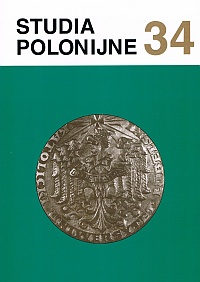The Commitment of the Catholic Church in the Process of the Polish Ukrainian Reconciliation in the Years 1989-2012
Main Article Content
Abstract
The difficult process of the Polish Ukrainian reconciliation is still continuing. The political transformations in and Ukraine in the years 1989-2012 had opened a research and public debate on the history of Polish-Ukrainian relations in the first half of the twentieth century. The two countries cooperate in the area of science, culture, economy, and politics more and more intensely. Mass social awareness, however, is changing slowly. The Catholic Church also indicated the need to accelerate the process of reconciliation. She has made in view of her peace mission and the need to improve mutual relations between the faithful of the Greek and Latin rites on both sides of the border. The superiors of the Roman-Catholic Church and the Greek-Catholic Church in Ukraine and in Poland have been engaged in the solution of the conflict concerning of the Lvov Eagles cemetery, have issued a series of appeals to both countries for reconciliation, have taken part in commemoration of the victims, and have performed symbolical acts of forgiveness. John Paul II supported the work of Polish-Ukrainian reconciliation. It was hoped that his pilgrimage to Ukraine in the June of 2001 would be a turning point. A sudden improvement of the situation, however, has not taken place, but in the following years many new initiatives of rapprochement appeared: common prayers, pilgrimages, meetings of the episcopate and the clergy of both countries. There are still problems, however, such as the disputes about temples, accusations of proselytism and depriving of national identity, discussions on the limitations of commitment in national and political life.

